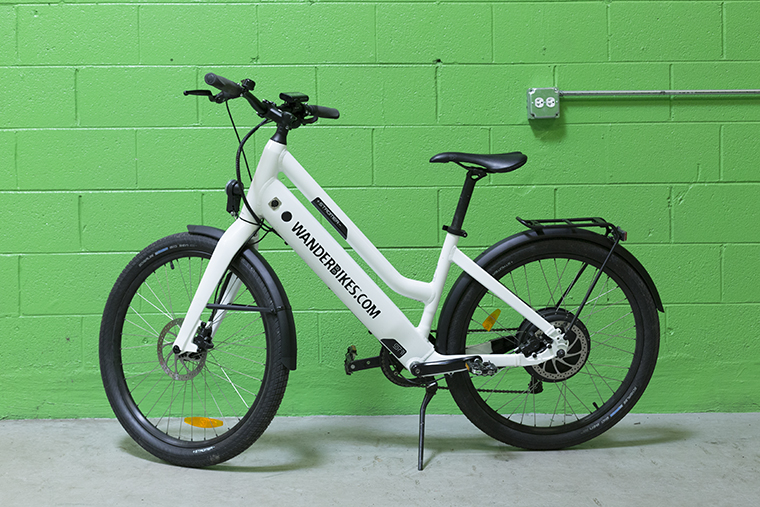Electric bikes could zoom through bike lanes
Electric bikes could zoom through bike lanes
May 12, 2014
Bicycle paths may soon welcome electric bikes with a proposal by two aldermen looking to clarify the city’s transportation laws.
Aldermen Scott Waguespack (32nd Ward) and Joe Moreno (1st Ward) introduced an ordinance April 2 that would classify e-bikes, which are operated by batteries and a motor, the same way as regular bicycles as long as their engines have less than one horsepower.
According to Danny Galin, Waguespack’s legislative aide, the update would impose a 20 mph speed limit and allow e-bike riders ages 16 and older to use standard bike lanes.
There is currently no law governing e-bikes in the city. If passed, the e-bike ordinance would update the city bicycle code to match an August 2009 Illinois law that regulates e-bikes with less than one horsepower the same way as traditional bicycles.
The Chicago Law Department revised the ordinance, which Waguespack and Moreno drafted in June, Galin said.
“There was some confusion about if [e-bikes] could be ticketed as motor bikes and how exactly they would be regulated in the city,” Galin said. “We wanted to clear that up so there was no confusion at all.”
Damon Doerschuk, co-owner of electric bike store WanderBikes, 2350 N. Damen Ave., said e-bikes are popular in Asia and Europe and are gaining popularity in the U.S., especially in Chicago, where cycling is already a common mode of transportation.
“I feel like there’s a shifting cultural attitude in regards to alternative transportation,” Doerschuk said. “People are looking for ways to get out of their cars, and while they might not find biking the most convenient way, if you throw in some electric assistance, all of a sudden it’s a viable alternative.”
When operated lawfully and safely, electric bikes can be an efficient method of transportation, especially for those who need extra assistance while biking, such as the elderly or people with disabilities, said Ted Villaire, director of communications for Chicago’s Active Transportation Alliance.
Villaire said the ATA mostly agrees with the ordinance but it does not think the legislation should apply to gas-powered bikes for environmental reasons.
“We’re opposed to [allowing gas-powered bikes in bike lanes] because of fumes that they emit,” he said. “They tend to be louder, they tend to be more powerful and we don’t feel that those should be allowed to be ridden in the bike lanes.”
Galin said the ATA expressed concerns to Waguespack’s office and they were considered when drafting the legislation.
“The state as a whole passed a bicycle regulation that included the gas bikes in their ordinance, so that’s specifically why it’s in ours as well,” Galin said. “It was important for the corporation counsel in the city that it mirrors the state law exactly.”
Under the ordinance, any gas-powered bike with more than one horsepower would be legally considered a motorbike. The Committee on Transportation and Public Way is set to vote on the ordinance May 22. If passed, it will go to the City Council for approval, Galin said. The proposal remains in committee as of press time.
Doerschuk said he supports the aldermen’s efforts to clarify the city’s e-bike regulations and that it helps make his job as an e-bike salesperson more viable and assists his current and potential customers.
“It clears up any kind of questions people may have about where they can ride an electric bike,” Doerschuk said. “It is our understanding that electric bikes are allowed anywhere that bikes are and municipal code will simply put that in writing.”








